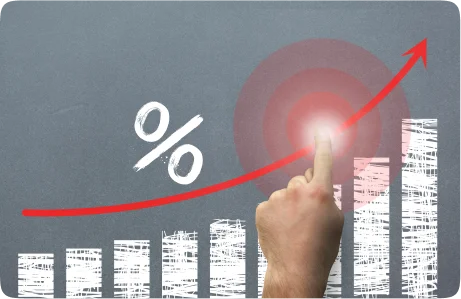Two titles which come to mind when exploring the complex crossroads of financial leadership on the private and public fronts are Controller and Comptroller. While the terms are interchangeable at some level, they are roles that can look very different depending upon the organisational context. Practicing Financial professionals, HR personnel and individuals who are into financial administration should know about Comptroller and Controller.
In this detailed blog post, we will explain the differences, similarities and practical implications of these roles – especially with respect to responsibilities, reporting structures, qualifications and how each functions in different kinds of organisations.
Historical Background of Both Terms and their Origin
Controller The word “Controller” is derived from the Middle English “countreroller,” which means someone who kept a copy of accounts to verify accuracy, and ultimately the French “contrerouleur.”
The term “Comptroller,” however, developed as a mistake in English history, as a mistranslation with customs to refer to a title with the similar role, but in a more formal or governmental capacity. We believe it’s pretty widely considered an offshoot of “Controller” but the consensus has morphed to mean something different (albeit only slightly) especially in the public sector.
Defining the Roles
What is a Controller?
A Controller is usually a high-ranking person in a private company who manages all of the accounting functions. This entails financial reporting, internal controls, budgeting, audits, and compliance with relevant laws & regulations. Controller Job Description typically includes overseeing accounting staff, generating monthly financial statements, handling payroll, and establishing financial systems.
What is a Comptroller?
A similar position to the Controller, the Comptroller is also prominent in government and non-profit organisations, and academic institutions. Their function is more oversight-oriented, specifically in the form of auditing and accountability in terms of financial expenditure of public funds. The title implies a level of officialdom at a level of the purse bigger than a Controller might be in charge of outside government.
The Difference Between Comptroller and Controller
As such these are practically the same jobs and the Difference Between Comptroller and Controller can be explained as follows:
Sector Usage
- Controllers: If you’ve never been a public company accountant and your experience is primarily private sector (provided that is the case), anywhere from corporations to start-ups to large multi-national companies.
- Comptrollers: Generally, in public entities like federal and state governments, universities and non-profit organisations.
Nature of Responsibilities
- Controller: Deals mainly with tactical financial management, internal accounting practices, budgeting and compliance.
- Comptroller: Skews more toward auditing, legislative reporting, and policing the rules around use of public money.
Reporting Structure
- Controllers in most cases are accountable to the Chief Financial Officer.
- Duties of the comptroller can vary widely among the jurisdictions, with certain fiscal offices responsible for a variety of responsibilities not limited to accounting, financial reporting, administration policy making, internal audit and vendor audit functions due to government size and population.
Emphasis on Oversight
- Acting as the Controller, this role will be involved in the day-to-day accounting.
- A Comptroller should be more concerned with the big picture of oversight, accountability, and transparency in the use of funds.
Key Responsibilities in Detail
Here are some of the key responsibilities of controller and comptroller that you need to know:
Controller Responsibilities:
- Compiling and issuing monthly financial statements when due
- Preparing the budget and the financial forecasts thereof
- Quality control of reporting and transactions affairs of finance
- Establishing and maintaining the internal control policies, procedures and systems
- Overseeing the accounting department and audits
- Compliance with laws and regulations
- Support tax returns and communicate with tax consultants
This aligns with a standard Controller Job Description, which can usually be seen in private companies or rapidly growing startups that need solid financial foundation.
Comptroller Responsibilities:
- Approving and reviewing public expenditures
- Monitoring governmental fund allocations
- Fiscal discipline and the observance of public law
- Coordinating external and internal audits
- Communicating with legislatures or boards
- Promoting transparency in the utilisation of public funds
- Frequently being the top financial watchdog in the states or federal department
In many respects, the Comptroller is a caretaker of the public treasury.
Financial Controller Vs Comptroller: Nuances to Know
Understanding the Financial Controller Vs Comptroller comparison clears things up as to which one title an organisation should be using over the other.
Private Sector (Financial Controller)
- Title: Financial Controller
- Critical topic: Profits, efficiencies, risk minimisation
- Reporting to: CFO or CEO
- Stakeholders: Shareholders, board, auditors
Example: Financial Controller in a manufacturing industry looks at cost control, vendor payments, Demand forecasting, Profit tracking.
Public Sector (Comptroller)
- Title: Comptroller
- Priority: Driven by the regulatory environment, budget discipline, public accountability
- Job reporting To: Head of government department or supervisory body
- Users: Tax payers, government, and other external auditors
For example a State Comptroller helps make sure that the state’s budget is spent according to the law and that no money set aside for the public is wasted.
Therefor as both deal with finances, the difference between Financial Controller and Comptroller role is in what and to whom they are accountable.
Qualifications and Skills Required
For Controllers:
- Becoming a CPA (Certified Public Accountant) or a CA
- Bachelor’s or Master’s in Accounting, Finance, or Business
- 7-10 years of accounting/finance experience required
- Strong analytical and leadership skills
- Familiarity with accounting software (QuickBooks, SAP, Oracle, among others)
- Budgeting, forecasting and knowledge of internal control frameworks.
For Comptrollers:
- CPA or CGFM (Certified Government Financial Management)
- Master’s degree in Public Administration, Finance or related field
- Strong knowledge of governmental financial legislation
- Familiarity with public sector accounting standards such as GASB
- Understanding of audit practices, public law, and budget preparation
Though the skills are similar, if you have a little bit of job add a Comptroller is likely to need additional experience in compliance and legislative advocacy.
Common Industries and Institutions
Where Controllers Typically Work:
- Corporations (retail, manufacturing, tech)
- Real estate firms
- Financial services companies
- Startups and SMEs
- Private equity firms
Where Comptrollers Typically Work:
- Government departments (federal, state, municipal)
- Educational institutions
- Non-profit organisations
- Healthcare systems (public hospitals)
- Defence and military agencies
That distinction reflects more than terminological preference, however; the Difference Between Comptroller and Controller is the scale at which they operate and the difference in mission.
Compensation Comparison
Salaries for Controllers and Comptrollers are dependent on company size, location, and range of responsibilities.
Financial Controller (Private Sector):
- Australia: AUD $130,000 – $180,000
- USA: USD $100,000 – $160,000+
- UK: £70,000 – £110,000+
Comptroller (Public Sector):
- Australia: AUD $120,000 – $160,000 (government positions, for instance, may compensate in the form of benefits instead of bonuses)
- USA: USD $90,000 – $140,000
- UK: £60,000 – £100,000+
Where controllers in the private sector may reward equity, bonuses or profit sharing, the reward to Comptrollers is generally in the form of pension, security and stability.
Interactions with Other Roles
Contollers and Comptrollers both work in team-based environments with the need to communicate cross functionally. But the way and how they touch are specific to the sector in which they operate.
Controller Interactions
In the private sector, the Controller is a subsidiary of the Chief Financial Officer (CFO) and is responsible for day-to-day financial operations, but not for strategic financial direction. They deliver important financial information and predictions for investment decision making, growth strategy, and capital allocation.
Controllers also work with external auditors for quarterly and annual audits, making sure that financial statements are correct, are following accounting standards (such as GAAP or IFRS), and don’t have material misstatements. They are tasked with both organise supporting to download the TDS certificate documents as well as resolving audit queries swifty.
In the organisation, the Controllers work with operations teams to maintain realiability in the forecast, cost, and efficient conversion of financial resources into product and delivery targets. The ability to communicate with the legal department is also extremely important in terms of tax filings, regulatory changes and financial risk levels.
Comptroller Interactions
For those in the public (or non-profit) area, working as a comptroller involves communicating with government organisations to make sure polices, funding dictates and statutory requirements are followed. Their work with auditors general or internal auditors is directed to accountability, to identifying inefficiencies and to reporting to oversight bodies on financial performance.
They also assist legislators or financial boards in developing and defending budget proposals, frequently influencing the allocation of taxpayer dollars. Maintaining a level of transparency in the interaction between building occupants or advocacy groups for the public and the organisation is important because nothing is more important than public trust and that funds are spent wisely.
These disparities should determine not just the workloads, but the general and administrative needs for each position.
Modern Evolution of the Roles
As digital accounting systems, cloud finance tools and real-time analytics have proliferated, so too have both role profiles.
- Now, controllers are taking on a bigger role in financial strategy, using tools such as Power BI, Tableau and ERP systems to turn data into insights.
- Comptrollers are turning to fully-integrated financial systems to make sure they can be audited, enforce proper fund control and meet new, more rigorous digital transparency laws.
Even with the advent of technology, the basic Difference Between Comptroller and Controller, is premised on what they do- profit motive vs. public service.
Read More: Comprehensive Guide to Financial Modeling for Small Businesses
Conclusion
There is a big difference between Controller and Comptroller Although the two terms sound alike, they are two completely different roles when viewed through the spectrum of organisational objectives, sector expectations, and reporting hierarchy. Whether recruiting for a for-profit or a governmental organisation, knowing the Financial Controller Vs Comptroller comparison is important to establish a role with which financial compliance requirements can be met.
In the end, both are stewards to financial integrity-one that benefits shareholders and business growth, and the other that benefits the public trust.
Frequently Asked Questions
What is the distinction between a Comptroller and a Controller?
They’re sort of the same, but not really, so What is the Difference between Comptroller and Controller. Controllers can usually be located in private companies and their function is to work on overseeing accounting operations, including financial reporting and budgeting. On the other hand Comptrollers typically work in public sector and non-profit organisations and focus on how public money is spent and compliance with government regulation.
Can a Controller transition to a Comptroller role (or vice versa)?
There are ways but they might come at a cost of experience and certifications. A Controller who is advancing to a Comptroller position needs knowledge of public financial laws, government budgeting, and compliance frameworks. On the contrary, a Comptroller transitioning to the private sector may have to adjust to profit-oriented concepts, corporate business finance instruments and internal performance indicators.
Who does a Comptroller report to vs a Controller?
In private industry, the Controller typically reports to the Chief Financial Officer (CFO). The Comptroller is typically an elected official, although in some jurisdictions the position is appointed, and who is known as a Controller. This is in keeping with the Comptroller’s emphasis on public account ability rather than business success.
Which one has got more authority – Comptroller or Controller?
One isn’t automatically more authoritative than the other; it is down to an organisation. For instance, a Comptroller can wield significant power in a government setting, while in a corporation, a Controller might rank second only to the CFO. The power of authority depends on the reporting line and organisation’s structure.
What background will be most effective in each position?
CPA or comparable certification are generally required for both positions. Comptrollers typically bring public finance experience, or a certification like CGFM, to the table, while Controllers have MBAs, CA or CFA certifications, which obviously can vary according to the need of the company.

![Formula and Function: How to Calculate Standard Deviation in Excel [2025]](https://www.modelreef.io/wp-content/uploads/2025/06/Calculate-Standard-Deviation-in-Excel-3.png)

